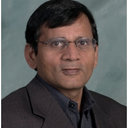Nocturnal awakenings, sleep environment interruptions, and fatigue in hospitalized children with cancer.
Keywords
Abstract
OBJECTIVE
To describe nocturnal awakenings and sleep environment interruptions experienced by children and adolescents hospitalized for two to four days to receive chemotherapy and to assess the relationships among nocturnal awakenings, sleep environment interruptions, sleep duration, and fatigue.
METHODS
Longitudinal, descriptive design.
METHODS
St. Jude Children's Research Hospital and Texas Children's Cancer Center.
METHODS
25 patients with solid tumors and 4 with acute myeloid leukemia.
METHODS
Actigraphy, fatigue instruments, sleep diary, room entry and exit checklists, and blood samples.
METHODS
Nocturnal awakenings, sleep environment interruptions, sleep duration, and fatigue.
RESULTS
The number of nocturnal awakenings per night as measured by actigraphy ranged from 0-40. The number of room entries and exits by a staff member or parent was 3-22 times per eight-hour night shift. The number of nocturnal awakenings was related to fatigue by patient report; patients who experienced 20 or more awakenings had significantly higher fatigue scores than those with fewer awakenings. Nocturnal awakenings also were significantly associated with sleep duration by patient and parent report.
CONCLUSIONS
Hospitalized pediatric patients with cancer who experience more nocturnal awakenings are more fatigued and sleep longer.
CONCLUSIONS
Nurses may be able to control some of the factors that contribute to nocturnal awakenings and sleep environment interruptions that affect fatigue and sleep duration in hospitalized pediatric patients with cancer.



